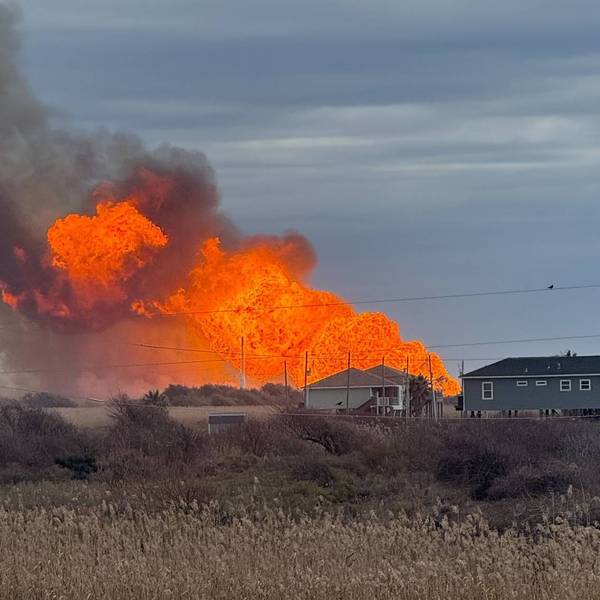A federal judge on Tuesday night quietly slashed a potential $562 million fine against Pacific Gas & Electric Co. (PG&E) for the privately owned, publicly regulated utility's role in a 2010 deadly natural gas pipeline explosion near San Francisco.
The incident six years ago "sent a giant plume of fire into the air, killing eight people and destroying 38 homes in the San Francisco Bay Area city of San Bruno," the Associated Press recalls.
As Common Dreams noted at the time, "In the weeks before the catastrophe, residents had been reporting gas odors and had voiced fears about a leak. But this brought no action from the company. A state assemblyman from the San Bruno area noted that the torn pipeline was over 60 years old, having been installed in 1948. He criticized PG&E for its poor maintenance and lax response. After the explosion, it took the company almost three hours to shut off the gas supply."
SFGate explained on Tuesday:
Prosecutors had maintained, in filings before and during the trial, that California's largest utility could be punished for any convictions with penalties equal to twice the amount it saved by shortcutting safety laws. They said those savings could be measured by the $281 million that PG&E estimated it would cost to comply with safety standards after the San Bruno explosion--leading to a potential fine of $562 million if the federal jury in San Francisco returned guilty verdicts.
But on Tuesday, "abruptly and without explanation"--and while the jury was still deliberating--federal prosecutors "walked away" from the hefty fine and U.S. District Judge Thelton Henderson signed off just hours later.
Now, the maximum fine would be $500,000 per conviction, or $6 million for all 12 counts--11 felony violations of laws that require gas pipeline operators to inspect their lines closely for potential risks, and one count of obstructing the federal investigation of the explosion. Six million is approximately one percent of 562 million.
"PG&E Corp. just dodged another bullet," wrote Bloomberg, which also noted that a $6 million fine "would be less than half a percent of the $1.5 billion profit PG&E recorded last year."
"It seems a rather remarkable development at this point in the criminal case," Paul Patterson, an analyst at Glenrock Associates LLC, told Bloomberg of the government's decision. "It would appear to be a substantial reduction in the financial risk associated with potentially a much higher fine."
NBC News reports that the decision "left San Bruno officials stunned," while expressions of shock and frustration also appeared online:
Kevin Collins, a lawyer and former federal prosecutor in Texas who has been following the PG&E trial, told The Recorder that prosecutors appear to have been "outmaneuvered or outgunned" by PG&E's defense team.
After all, as author Michael Parenti wrote in 2010: "Like any other multi-billion-dollar firm, PG&E is first and foremost in the business of making the highest possible payoffs for its shareholders and its executives. The system works just fine for those whose real job is to skim the cream, those who do not have to pay the costs. That is the alpha and omega of modern corporate capitalism."



